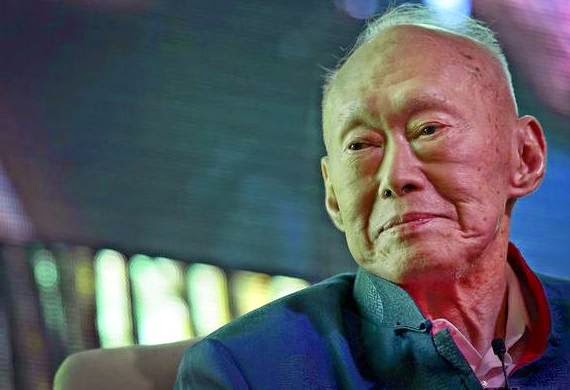Lee Kuan Yew, Singapore's prime minister for 25 years from 1965, died on March 23 at 3:18 am local time, at Singapore General Hospital aged 91.
Lee was credited with developing the tropical backwater into a world-class economy, and he established himself as one of the most important opinion leaders in Asia, even after stepping down as prime minister in 1990 as Nikkei Asian Review said.
Lee was hospitalized with severe pneumonia on Feb. 5, and reports in recent weeks indicated that his condition was deteriorating.
Details of funeral proceedings will be anounced later.
In 1959, Lee became prime minister of what was then a self-governing state in the British Commonwealth. After Singapore was pushed out of the Federation of Malaysia in 1965, he became the independent nation's first prime minister.
In total, Lee served as Singapore's Prime Minister for 31 years. His first son, Lee Hsien Loong, has been prime minister since 2004.
After stepping down in 1990, Lee assumed the posts of senior minister and later minister mentor, retaining influence over policy from behind the scenes.
In 1967, Lee helped found the Association of Southeast Asian Nations. He was rapidly establishing himself as one of Asia's influential leaders, transforming his small country into an industrial and trading hub. He established vital infrastructure -- airports, docks, industrial parks -- ahead of other Southeast Asian nations.
Lee wooed foreign investors with tax benefits and other incentives, turning the island republic into one of Asia's premier business centers. By 2014, Singapore's per capita gross domestic product had reached $56,000, far surpassing Japan.
Domestically, Lee promoted stability in a multiethnic society. He governed Singapore with effectively one-party rule and an often heavy hand, restricting freedom of speech and invoking the Internal Security Act to counter anti-government sentiments and activities that could threaten the stability of the country.
Some critics overseas considered Lee's authoritarian style undemocratic, but he argued that stable domestic politics were crucial in a small nation.
Internationally, he placed great emphasis on balance in both politics and security. In his later years, he sometimes expressed concern that China's growing political and military might could threaten equilibrium in Asia; he called on the U.S. to engage actively with Asian countries in order to maintain regional balances.
Lee visited Japan from time to time, and he spoke at the International Conference on the Future of Asia hosted by Nikkei. In January 1999, his memoirs appeared as a month long series in The Nikkei.
Lee was credited with developing the tropical backwater into a world-class economy, and he established himself as one of the most important opinion leaders in Asia, even after stepping down as prime minister in 1990 as Nikkei Asian Review said.
Lee was hospitalized with severe pneumonia on Feb. 5, and reports in recent weeks indicated that his condition was deteriorating.
Details of funeral proceedings will be anounced later.
In 1959, Lee became prime minister of what was then a self-governing state in the British Commonwealth. After Singapore was pushed out of the Federation of Malaysia in 1965, he became the independent nation's first prime minister.
 |
| Lee Kuan Yew, Singapore's first prime minister, attends the Standard Chartered Singapore Forum in the city-state in March 2013 |
In total, Lee served as Singapore's Prime Minister for 31 years. His first son, Lee Hsien Loong, has been prime minister since 2004.
After stepping down in 1990, Lee assumed the posts of senior minister and later minister mentor, retaining influence over policy from behind the scenes.
In 1967, Lee helped found the Association of Southeast Asian Nations. He was rapidly establishing himself as one of Asia's influential leaders, transforming his small country into an industrial and trading hub. He established vital infrastructure -- airports, docks, industrial parks -- ahead of other Southeast Asian nations.
Lee wooed foreign investors with tax benefits and other incentives, turning the island republic into one of Asia's premier business centers. By 2014, Singapore's per capita gross domestic product had reached $56,000, far surpassing Japan.
Domestically, Lee promoted stability in a multiethnic society. He governed Singapore with effectively one-party rule and an often heavy hand, restricting freedom of speech and invoking the Internal Security Act to counter anti-government sentiments and activities that could threaten the stability of the country.
Some critics overseas considered Lee's authoritarian style undemocratic, but he argued that stable domestic politics were crucial in a small nation.
Internationally, he placed great emphasis on balance in both politics and security. In his later years, he sometimes expressed concern that China's growing political and military might could threaten equilibrium in Asia; he called on the U.S. to engage actively with Asian countries in order to maintain regional balances.
Lee visited Japan from time to time, and he spoke at the International Conference on the Future of Asia hosted by Nikkei. In January 1999, his memoirs appeared as a month long series in The Nikkei.
